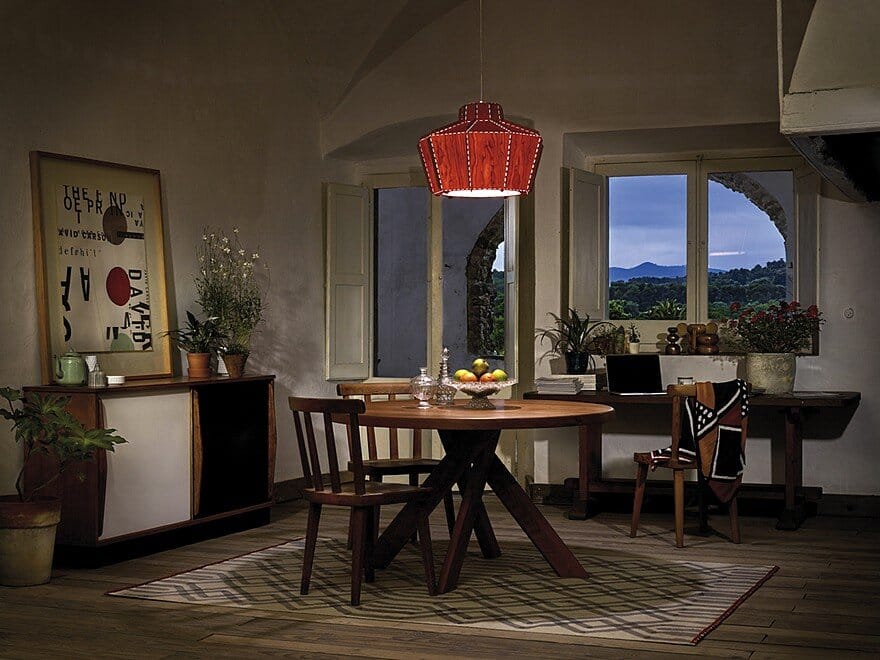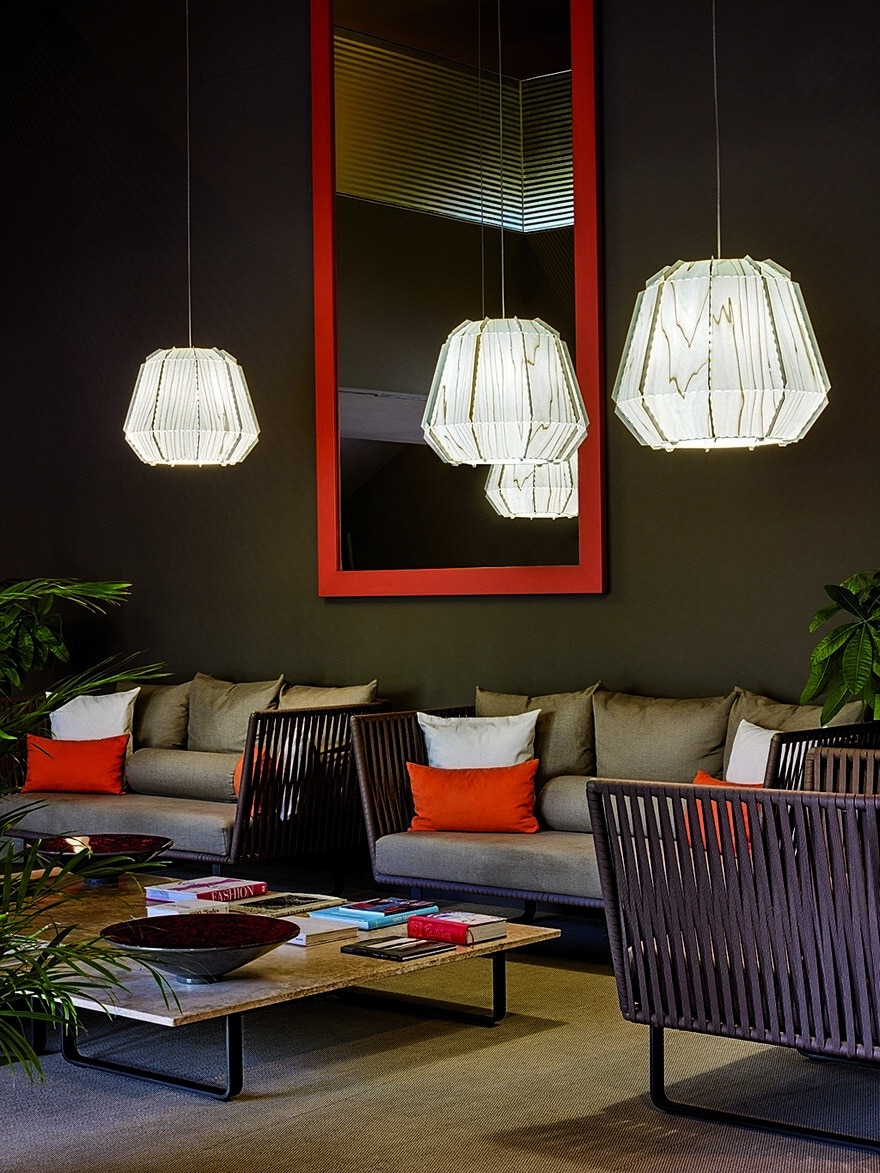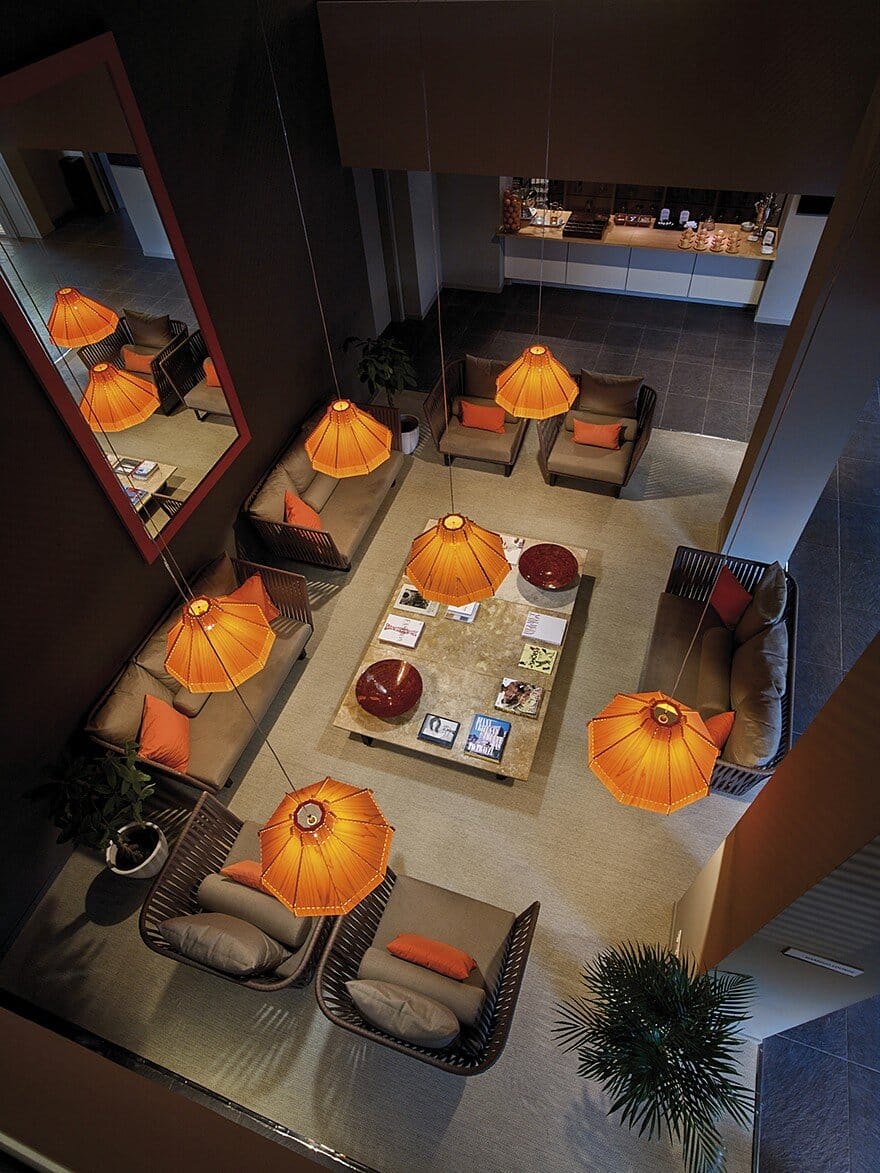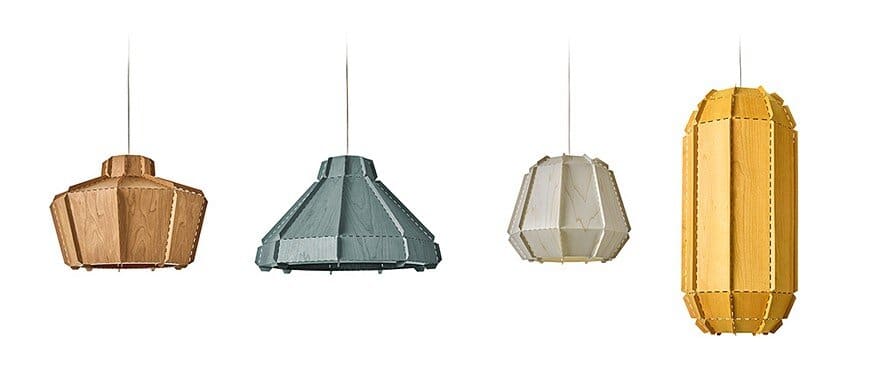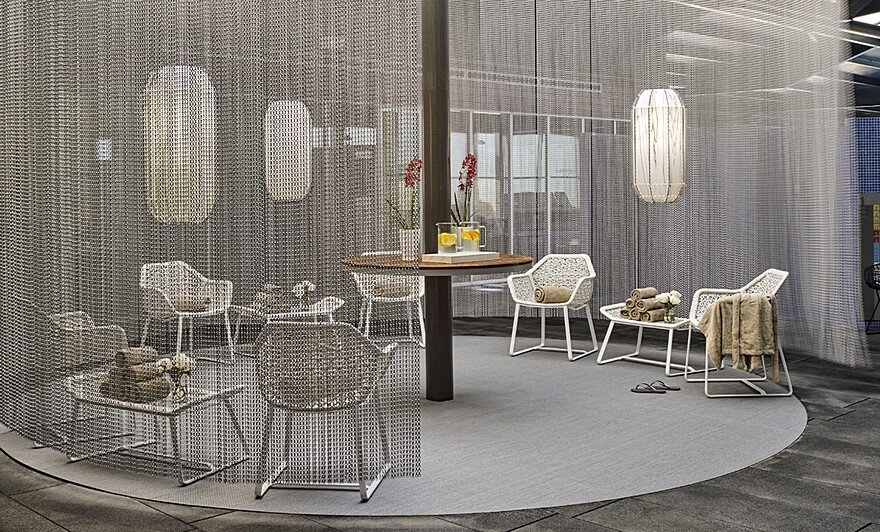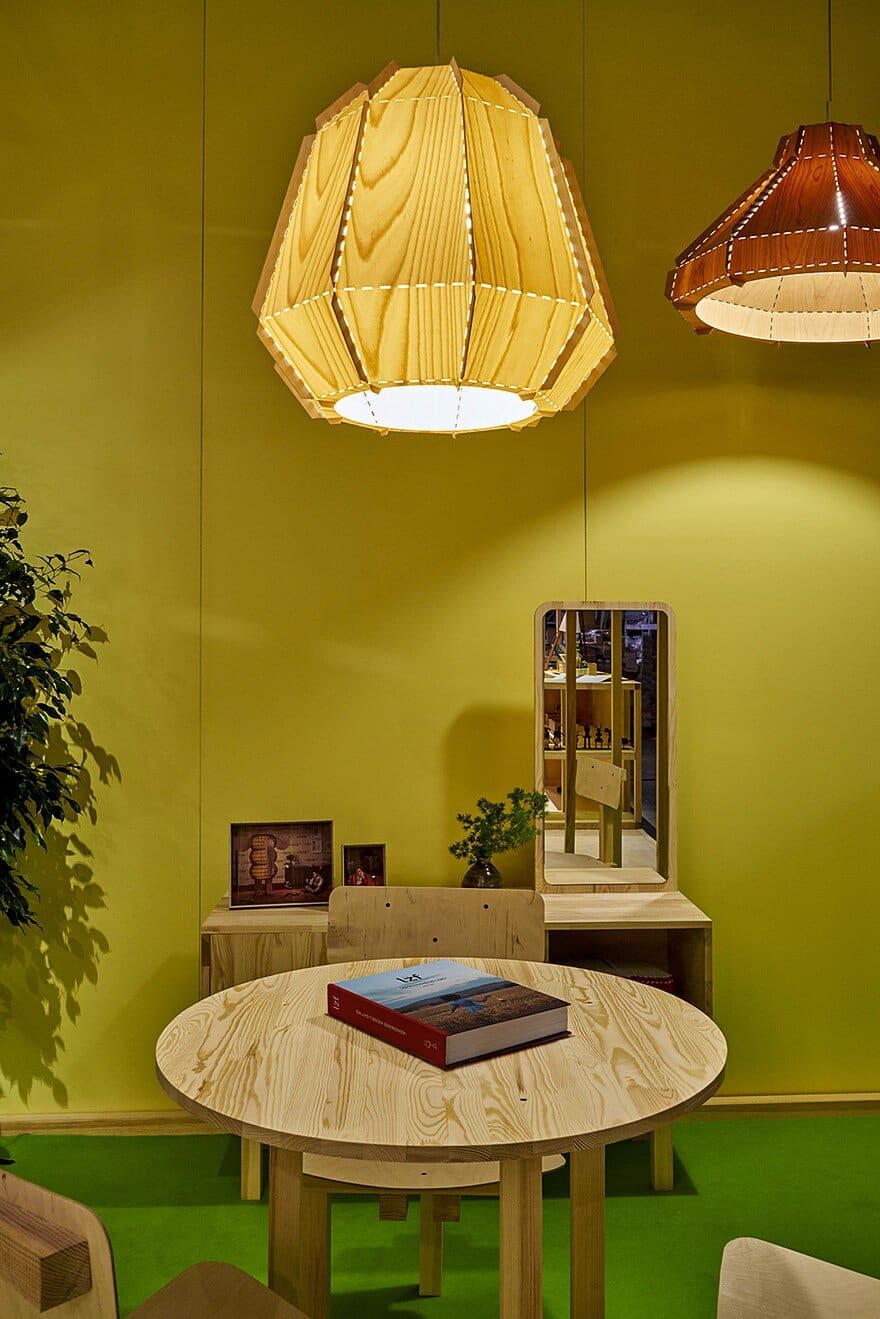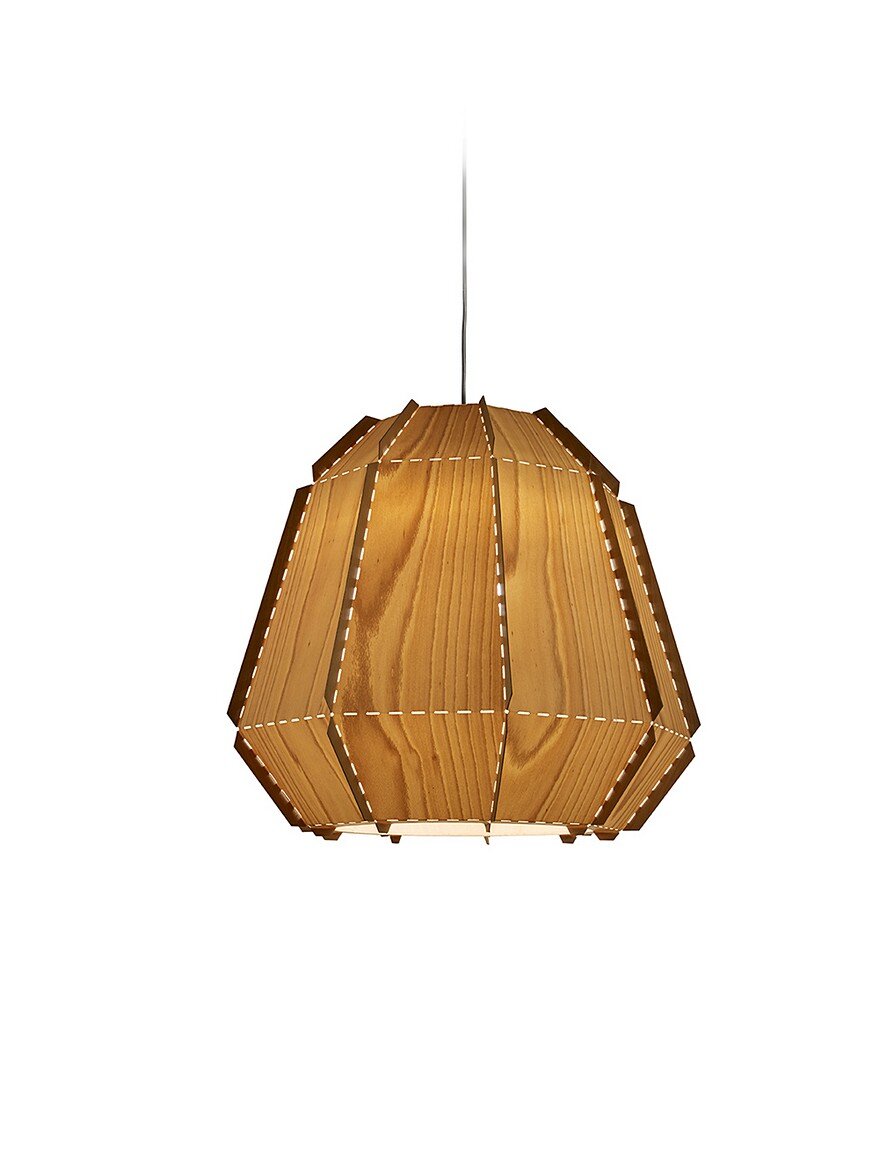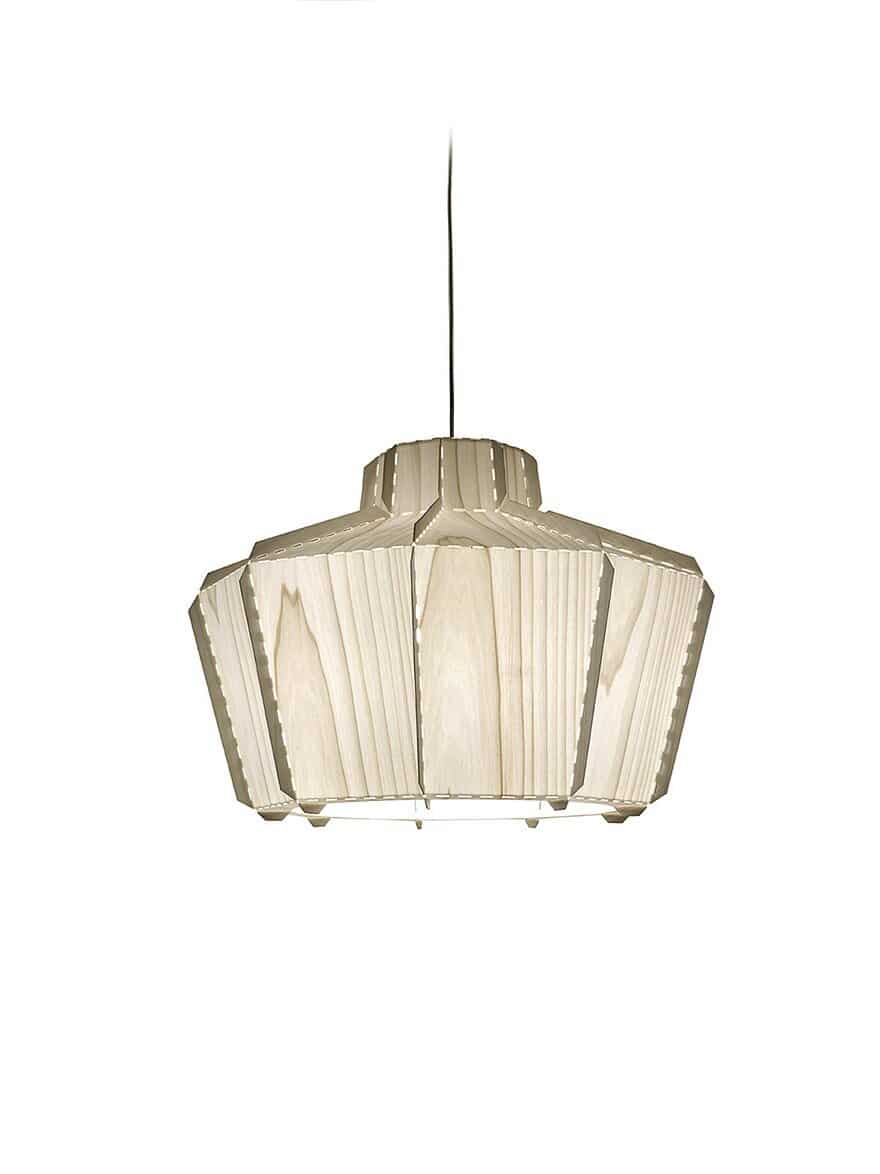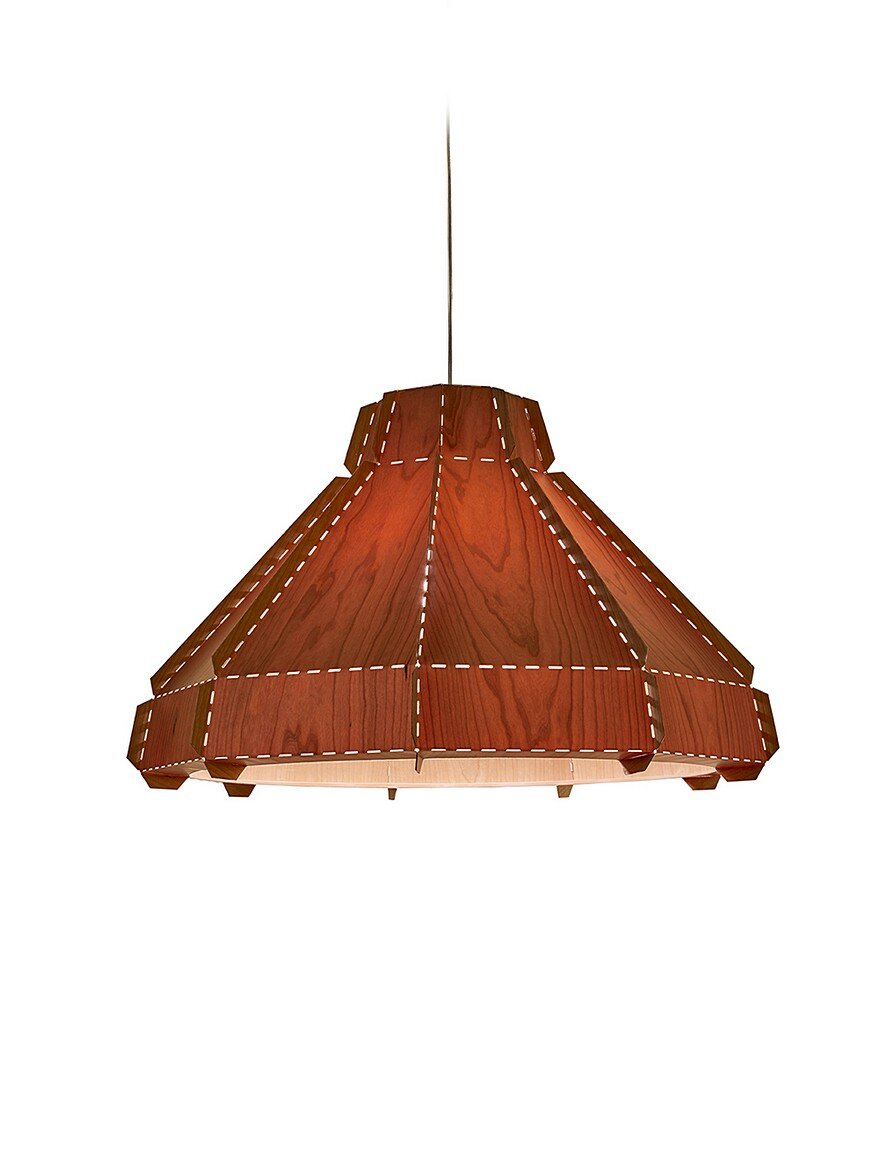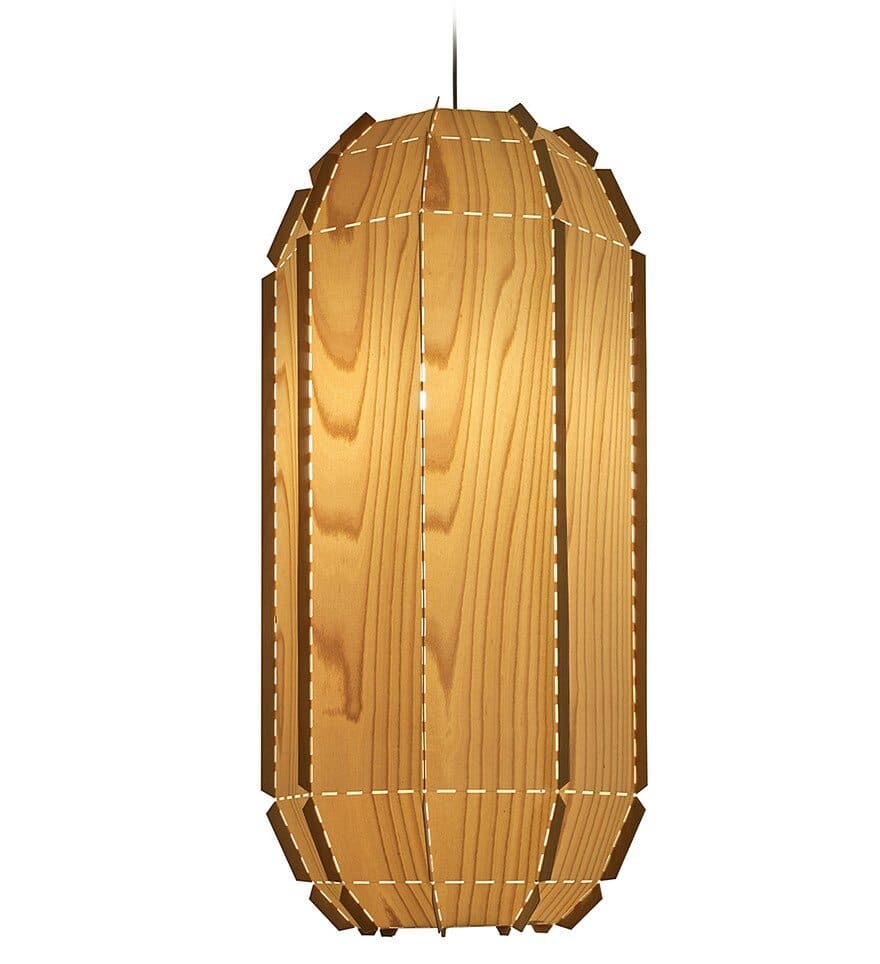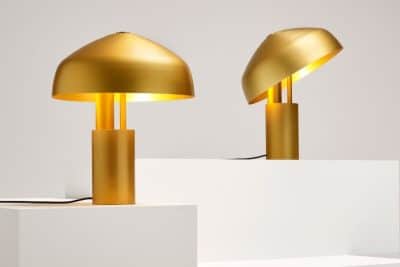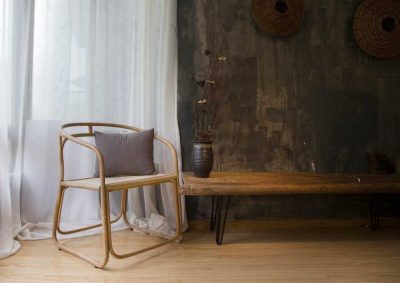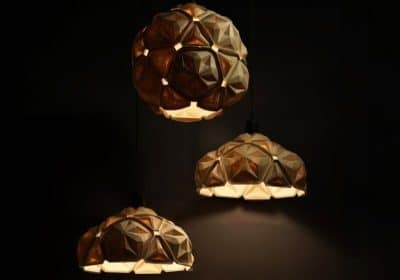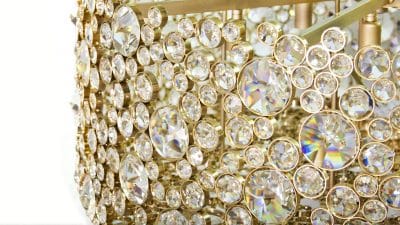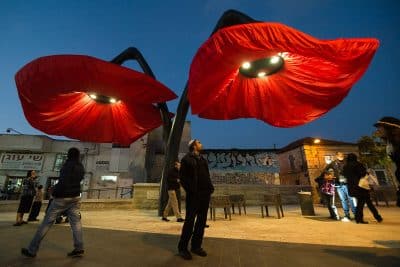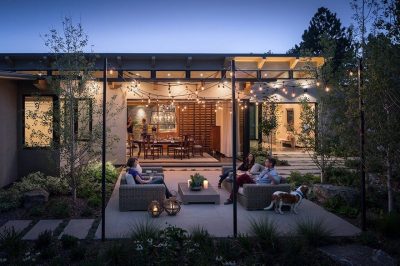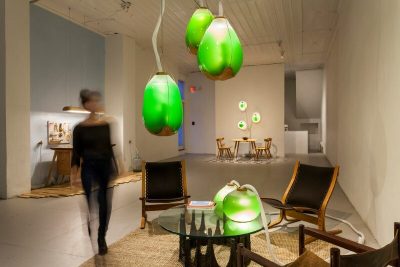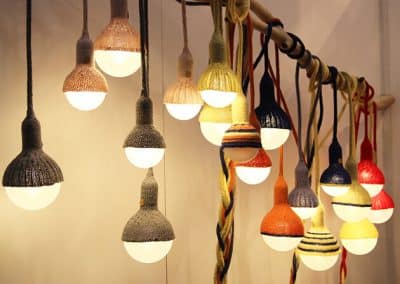Egbert-Jan Lam of Netherlands-based Burojet Design Studio has designed and ‘embroidered’ Stitches Lamps, a new family of lamps for LZF.
LZF Lamps presented its New Collections 2017 at Euroluce, the International Lighting Exhibition that runs in the context of the Salone del Mobile in Milan (Italy).
Known as Stitches, veneer lengths are crafted in a traditional sewing fashion: by marking out a pattern and cutting it. Just as a dressmaker makes a dress or a tailor makes a suit, the Stitches pattern is repeated to produce an individual lamp—there are presently four lamps in the Stitches family.
Where hemming is normally used as a garment finishing technique (with the edge of a piece of cloth folded and sewn), the Stitches lamps each have a visible hemstitch. Light then shines through this hemstitching, cleverly simulating the embellished stitches found on cloth.
The method employed in creating Stitches lamps allows LZF to design and produce a variety of lamp shapes, each with its own distinct pattern. In effect, it is a relatively simple way of making a large collection of lighting. Still, the challenge lies in crafting different Stitches models from wood veneer. A fragile material, LZF is pushing the limits of wood veneer by skilfully manipulating it in a traditional sewing-like manner.
With its four original Stitches models—known as Mopti, Tombuctú, Djenné and Bamako—LZF has created an aesthetic and innovative range of handmade wood lamps. Each lamp is named after a town or city in Mali, as their shapes allude to the adobe mosques found across the West African nation. Moreover, Mali has a long history as a producer of embroidery, something embodied in Stitches.

